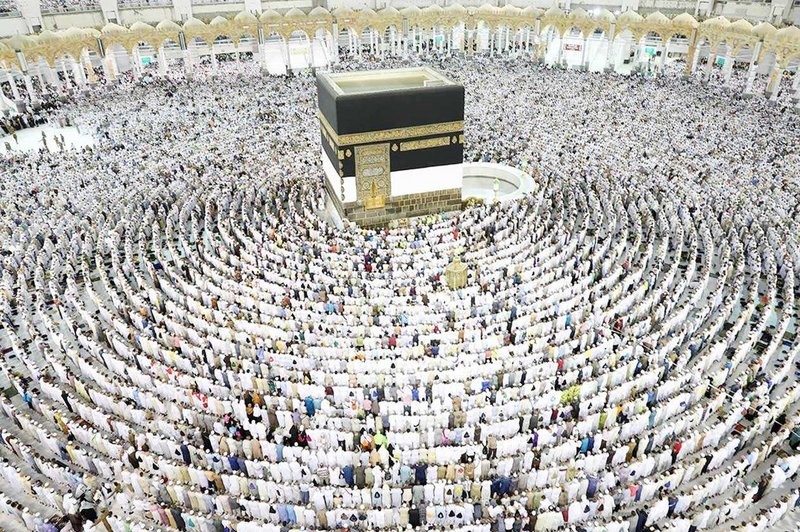Salat – The Destroyer of Arrogance

In her famous sermon called “Al-Khuṭbah al-Fadakiyah”, after having spoken about the issue of faith, Lady Fatimah al-Zahra (sa) enunciates the philosophy behind the divine legislation of Ṣalāṭ (ritual Islamic worship). She is narrated to have said, “And (God has decreed) Ṣalāṭ to purify you of arrogance”.
Arrogance; The Enemy of Pious Servitude
As mentioned earlier, Lady Fatimah al-Zahra (as) states that the philosophy of Ṣalāṭ is to wash away arrogance from the human heart. A possible question may come to mind: Among all the various vices that exist, why has arrogance been singled out as that one ill that an act as sacred as Ṣalāṭ is supposed to cleanse our hearts and souls of? One must note that all divine religions and God’s holy prophets (as) have laid particular emphasis upon Ṣalāṭ as a critical spiritual practice. When Prophet Īsā or Jesus (as) miraculously spoke in his infancy, he said: “He (the Almighty) has made me blessed, wherever I may be, and He has enjoined me to [maintain] the ṣalāṭ (i.e. ritual prayer) and to [pay] the zakāt as long as I live”[1]. Therefore, returning to the question raised earlier, one must ponder what makes arrogance so dangerous that a pivotal and comprehensive act of worship such as Ṣalāṭ must be ordained to fight its destructive effects and consequences. This query must be answered by analysing the path that leads human beings to perpetual prosperity – prosperity that lies in spiritual proximity to the Almighty.
Within the framework of Islamic thought, it has already been established that pious servitude towards God is the only path that can lead people to eternal success and prosperity. Having accepted this principle, it is crucial to note that a sense of inflated self-importance and vanity contradicts the aforementioned state. Pious servitude vis-à-vis God Almighty signifies a declaration of one’s existential reality whereby a person proclaims that he is nothing and owns nought. In the words of the Holy Quran: “A chattel who has no power over anything”[2], or as described by one of the infallibales (as) in a supplication: “He who does not own for himself any form of gain or loss, nor does he possess any claim over death, life or resurrection”[3]. In contrast, an individual corrupted by arrogance expresses a diametrically opposite position. In his distorted and delusional view, he is a being of immense importance and greatness, adorned by innumerable virtues, who must never bow before anyone or anything other than himself. If this state of mind takes root within the soul of a human being and becomes second nature to him, such a person shall not be prepared to bow down and express humility even before God Almighty! Since the only path that could have led him to true and perpetual prosperity was to show utmost humility and subservience before the Creator, this individual in question will find himself woefully deprived of any chance at gaining eternal bliss and success.
A narrated tradition reports that once a group of elders belonging to one of the wealthy and well-known tribes of Arabia came to visit the Holy Prophet (s). They addressed the Messenger of God (s) and said: “We have come to you in order to accept Islam, and we wish to place our lives and riches at your disposal. However, we will do so only if you exempt us from performing ritual prostration during prayer”. The Holy Prophet replied: “There is no virtue in a religion that does not include Rukū’ (ritual bowing) and Sujūd (ritual prostration)”[4].
Giving up their narcissistic delusions of self-glory is difficult for such people whose souls have become poisoned by the disease of arrogance and vanity. As is evident in the incident above, they would give up their previous faith and all their riches, but not their misplaced pride.
Arrogance; The Cause of Satan’s Downfall
Satan’s disgraceful expulsion from the Almighty’s divine court after six thousand years of ostensible worship was caused by also his arrogance and vanity. Interestingly, the Commander of the Faithful, Ali ibn Abīṭālib (as) is narrated to have said: “It is not known whether (these six thousand years) were worldly years (which consist of 365 or 366 days) or years of the Hereafter (where every day is equal to fifty thousand worldly years)”[5]. Nevertheless, the said number is genuinely massive and astonishing, even if it represents earthly time. Indeed, Satan, who was a jinn and not an angel, had so engrossed himself in worship that he was afforded a place within the ranks of God’s blessed angels. When the Almighty commanded His angels to prostrate before Adam (as), this directive also addressed Satan. However, Satan refused to accept this order and declared: “Surely, I am better than him … You created me from fire, and You created him from clay”[6]. If we translate Satan’s words, as quoted by the Holy Quran, into the contemporary language of today’s modern narcissists, we will end up with statements such as these: “(O’ God!) Your decree is devoid of any rational basis! Humility and subservience must be shown by someone lesser in rank and subordinate. I am created of fire, and fire is better than clay! Therefore, I am naturally superior to Adam!” This was the logic and rationale presented by Satan in support of his disobedience. What Satan failed to understand was that the very essence of obedience toward God Almighty is absolute humility and submission to a being that is comprehensively and absolutely perfect and infinitely great, such that it is impossible to even imagine another entity with similar or more extensive excellence in any way or form.
It should also be noted that, as per the information available to us, Satan is not reported to have ever sinned in the entirety of the six thousand years of diligent worship. After such a long period of service, he committed one sin when he rejected God’s command regarding prostration before the prophet Adam (as). “I will never partake in such an action!” He had adamantly declared. The fact that a single sin could cause Satan’s dishonourable expulsion from God’s sublime proximity while rendering six thousand years of constant worship worthless in comparison invites deep deliberation. Again, one can pose this question in a more contemporary manner by saying: “How is it fair and just for God to instantaneously ignore six thousand years of worship just because of a solitary sin?”
To answer this question, we must first realise that God’s actions do not fit within the limited parameters of such a superficial level of analysis. The truth is that a single isolated sin did not cause Satan’s downfall. Instead, this sin was merely a symptom of a deeper and more menacing problem. In reality, Satan had never truly committed himself to absolute subservience towards God. As such, it was never his intention to obey all of God’s directives without exception. This state of affairs was a direct consequence of his inherent and ingrained arrogance. This deep-rooted vanity finally manifested itself in his open rebellion against God.
One of the signs exhibited by the entry of true faith into someone’s heart and soul is that the individual begins believing that he must obey God Almighty in the absolute sense and act according to all His commandments without harbouring even an inkling of doubt or objection. Indeed, the faith of a person who rejects just one of God’s commandments, even though he obeys the Almighty in all others, is deemed unacceptable. Islam is clear about the inadmissibility of any form of faith soiled by exceptions, even a solitary one. Faith must be absolute. Without a doubt, if a person’s faith is subject to even an iota of conditionality, it becomes equal to absolute disbelief. The Holy Quran explicitly states: “Those who disbelieve in Allah and His apostles and seek to separate Allah from His apostles, and say, ‘We believe in some and disbelieve in some and seek to take a way in between, it is they who are truly faithless, and We have prepared for the faithless a humiliating punishment”[7].
If a person knowingly denies or rejects one of Islam’s well-established tenets or teachings, then such a person is similar to someone who has rejected the entirety of this creed. Indeed, an individual who embraces Islam for the sake of God’s divine pleasure cannot discriminate between the various Islamic doctrines. He must realise that the entire body of Islamic teachings and commandments are from God Almighty and must therefore be acknowledged and accepted in their totality. As such, any rejection of even a single tenet or statute reveals that the acceptance of the rest was not motivated by one’s intention to obey God or win His divine pleasure. This kind of selective acknowledgement and acceptance is driven and fueled by worldly desires. Consequently, the essential spirit of faith and belief does not exist within such an individual’s heart and soul. A human being only has two states vis-à-vis God Almighty: he either submits to all of God’s commandments and thereby enjoys the blessed state of belief and faithfulness, or he fails to do so and therefore suffers in the darkness of disbelief. In short, there is no difference between someone who has 99% belief and someone who has no belief at all.
The Difference Between Rebellion and Sinfulness
There may exist people who have never performed the Ṣalāt (ritual Islamic worship) or have never acted by any of God’s commandments. However, some of them may regret their past deeds and express remorse before God Almighty. They might do so by confessing to their laziness or lustfulness or any other shortcomings that they might possess while also professing their belief regarding the absolute necessity of obeying God without exception. As such, they might address the Almighty and say, “I am wholeheartedly remorseful and sincerely hope that I will be granted the chance to repent and seek divine forgiveness for my follies so that I am forgiven for the errors I have previously committed”. A person with such a state of mind is not considered a disbeliever, even though his past actions constitute sins. Disbelief results from a person’s willful objection to or rejection of God’s commandments. Herein, we must note there is a significant difference between a person who raises questions about God’s laws with the sole intention of better understanding them and someone who raises these questions because he wishes to express his disregard or dissent. Disbelief and heresy are exclusive to the latter of these two forms of inquiry and expression. The Holy Quran quotes Satan as saying: “I am not someone who will submit to prostrating before a human you have created out of dry clay (drawn) from ageing mud that is black and emits foul odour”[8]. In this statement, Satan clearly wishes to protest God’s actions and deems them to be irrational. His own words lay bare his concealed arrogance and vanity. Once his narcissism reveals itself, God addresses him and declares: “Begone hence! For you are indeed an outcast, and indeed the curse shall lie upon you until the Day of Retribution”[9].
Looking back at Satan’s disobedience, the Holy Quran states: “…and he was one of the faithless”[10]. Some scholars think that this Quranic verse seeks to say that Satan “became” a disbeliever after he rejected God’s divine decree. However, such an interpretation seems out of place and unnecessary. The verse’s apparent meaning is beyond criticism; it is also entirely appropriate and well-suited to the circumstances it seeks to describe. Indeed, in the verse in question, the Holy Quran wishes to state that Satan was always a disbeliever. This is because he had never accepted that one must be obedient to God in the absolute sense and must submit to all His wishes and commandments. Thus, when he was ordered to prostrate before Adam (as), he immediately rejected the idea and obstinately expressed his arrogance and entrenched vanity by saying, “I will not prostrate before him!” The problem was not that he had disobeyed one of God’s commandments. Instead, the actual problem was the deep-seated narcissism that became apparent in his words and served to reveal his inherent disbelief and faithlessness.
Sometimes, especially in proverbs and poetry, it is mentioned that Satan’s downfall was caused simply because he failed to perform a single act of ritual prostration. This is an entirely inaccurate portrayal of what truly happened. The core issue behind Satan’s expulsion was never his failure to prostrate. Indeed, there exist a large number of people who did not perform ritual prayers for years on end and never bowed down to prostrate before the Almighty even once, but later became remorseful of their negligence and humbly asked God for forgiveness, thereby returning to the path of virtue and righteousness. In reality, the actual issue that instigated Satan’s downfall and dishonour was the fact that his whole being was permeated by delusional pride and narcissistic self-conceit.
His words, quoted by the Holy Quran, clearly betray his insolence and egotism. This mindset, which represents one of the principal hallmarks of a disbeliever, became the ultimate cause of his ignominious expulsion from God’s divine court while also earning him the status of being eternally cursed. In short, Satan nose-dived into the abyss of damnation not due to his failure to perform a single act of prostration; instead, it was because he abandoned faith itself.
A certain degree of this mindset may also exist in our hearts and souls. There exist various signs that can reveal the presence of such a spiritual disease. For instance, a person afflicted by arrogance and vanity has a shallow tolerance threshold for any disrespect sent his way. As such, he may sometimes abandon even the most obligatory of religious responsibilities just because he feels insulted or unappreciated. The degree to which people may be corrupted by this ill may differ. Some people may be afflicted by an abundance of spiritual vice, while others may be harbouring it only slightly. Nevertheless, even a small amount of this dangerous affliction can prove to be spiritually devastating, especially if its seeds are allowed to take root and grow, thereby slowly taking over the entirety of a person’s heart and soul.
As mentioned earlier, the exclusive path that can lead humanity to perpetual prosperity and eternal success is the path of pious servitude towards God. For this very reason, the Holy Quran states that the Almighty’s purpose in creating humanity as well the jinn was that they might engage in devout worship: “I did not create the jinn and the humans except that they may worship Me (and, through such worship, be able to attain holistic and comprehensive development, thereby gaining My spiritual proximity)”[11].
Indeed, devout worship is the pinnacle of a person’s expression of humility and submission before God Almighty. Naturally, the greatest enemy standing in the way of sincere worship is none other than arrogance and vainglory. No being in God’s entire creation is more virtuous and exalted than the Holy Prophet (s). But we still find this Sacred Messenger (s) getting up in the darkness of night, raising his hands high in solemn supplication, his eyes filled with tears, and whispering these words: “O’ Lord! Do not surrender me to my own self even for as much as the blinking of an eye!”[12] Such expression of total and complete humility before God provides us with a glimmer of the unfathomable extent and depth of the Holy Prophet’s unique understanding and existential realisation of who the Almighty truly is. Even in our times, some people were fortunate enough to witness the humbleness of Ayatullah Behjat (ra) when he performed ritual prayers. They recall how his voice trembled due to the spiritual ecstasy he experienced. Indeed, the Almighty’s chosen saints enjoy a level of sublime comprehension which lies beyond the grasp of our basic intellects.
To attain God’s spiritual proximity or to reach ever closer to this glorious rank, one must truly understand the absolute greatness and unparalleled majesty of the Almighty while also realising one’s total insignificance and abject lowliness. We must perceive and deeply appreciate our existential indigence in order to gradually move towards the hallowed station of our Lord’s spiritual proximity. As such, we must focus our attention and efforts towards eliminating the malignant presence of arrogance and vanity from within our souls while simultaneously training our hearts in the sublime spiritual discipline of sincere humility.
To effectively achieve this objective, the best technique presented by God Almighty is the practice of Ṣalāṭ or ritual Islamic worship. Several times daily, a believer must prostrate himself, placing his most respected and cherished body part upon the earth in an utmost expression of servitude and humbleness. He must do so to cleanse himself of all forms and shades of narcissism so that he may reach a level of spiritual perfection and excellence that is eternal and can only be attained through open submission and humility before God. Indeed, it is impossible to achieve such a rank and status as long as even a minute speck of vanity remains within a person’s heart.
The Roots of Disbelief
Traditions narrated from the Immaculates (as) indicate that arrogance, envy and greed are the three primary sources of disbelief[13]. In other words, if these three characteristics are allowed to take root within the heart of an individual, they will gradually grow and strengthen, bearing the foulest fruit, which is none other than faithlessness and disbelief.
When a person harbours vanity and narcissistic self-glory in his soul, his speech and expression soon follow suit, and he begins to talk with impudent arrogance while feeling no inhibitions in this regard. This state can be witnessed in words used by today’s conceited and arrogant individuals when they declare it unnecessary for human beings to obey all of God’s commandments. Under the spell of their own delusional and self-absorbed pride, they proclaim that since humanity possesses the power of the intellect, it can independently and adequately discern the path of its prosperity and success. They continue by saying that the Holy Prophet of Islam (s) lived 1400 years ago, and the statements he made were in accordance with the prevailing circumstances and culture of that time. As such, some of these statements may be correct while others may be erroneous, thus exhibiting the need for them to be critically evaluated. This state of mind motivates such individuals to develop ideas and pseudo-academic theories such as the “possibility of critiquing the Quran”. In turn, they utilise these concepts to attack and accuse the Sacred Book of God. For instance, they write, “We can critique the Quran based upon the findings of modern science. Subsequently, we can accept those portions of the Quran that are compatible with scientific knowledge while rejecting those that are not”. Words such as these are the result and consequence of a person’s deep-rooted arrogance and vanity. Indeed, if the psychology of all the leaders who have spearheaded the propagation of disbelief and misguidance within human history were to be studied, it would not be unlikely for us to find that the principal reason behind their deviancy was the fact that their hearts and souls had become thoroughly corrupted by narcissism and arrogance.
Now, having grasped the immense significance of this spiritual and moral vice, one can easily understand why God constituted the Ṣalāt (or ritual Islamic worship) as a potent weapon designed to uproot all traces of this malicious form corruption. The inbuilt capability of Ṣalāt to effectively fight and destroy human vanity represents a prominent feature exclusive to this particular form of worship. Other types and categories of ritual prayer do not illustrate man’s total humility and lowliness before the Almighty to the extent embodied within the Ṣalāṭ. Indeed, when it comes to the expression of humbleness, no other deed can compete with the act of falling on the ground before God and placing one’s forehead upon the earth in pious devotion to one’s Lord and Master.
Rabī’ah ibn Ka’b reports, “The Holy Prophet (s) said to me one day: ‘O’ Ka’b! You have served me for seven years. Do you not wish for something in return?’ I replied: ‘O’ Messenger of God (s), allow me a little time to think about this matter. The next day, I returned to see the Holy Prophet (s) again, and he said: ‘O’ Ka’b! Tell me your wish’. I answered: ‘O’ Messenger of God (s), ask the Almighty to make me your companion and neighbour in Paradise’. The Prophet of God (s) said: ‘Who instructed you to ask for such a thing?’ I responded: ‘No one instructed me. I pondered and concluded that if I ask you for money, this money will eventually run out, and if I ask you for a long life or numerous children, both of these will inevitably end in death. The Messenger of God (s) remained silent for a while and then said: ‘I will grant you your wish, but you too must help me in this regard by performing ritual prostrations frequently.”[14]
The Holy Quran has employed particular phrasings to emphasise the importance of the ritual act of prostration. For instance, it says: “… and prostrate before Him for a part of the night and glorify Him the night long”[15]. Such words have not been used in the Quran for other forms of worship. Firstly, it asks us to prostrate before the Almighty at night because the human mind is relatively less preoccupied and cluttered in the silence of a dark night. Then, it tells us that we should spend a large portion of the night in solemn prostration and supplication. This Quranic recommendation, far from being viewed as burdensome, is, in fact, whole-heartedly embraced and welcomed by those who passionately seek the spiritual proximity of their Beloved Lord. For such devoted wayfarers, there exists no greater pleasure than the ecstasy of worshipping the Almighty. It is narrated within the biographical account of Uways al-Qaranī that he would sometimes say: “Tonight is the night of prostration” and would subsequently spend the entirety of that night with his face of the earth, wholly absorbed in the act of pious prostration before God[16].
Similarly, Niẓām al-Tawliyah, who was once the head of security at the Holy Shrine of Imam Riḍā (as), reports that he was on duty during one freezing winter night. At the beginning of his shift, the other staff members informed him that no visitors were present within the Shrine’s premises due to the chilly weather and heavy snowfall. They asked him for permission to lock the Shrine doors, which he promptly granted. The relevant officers locked all the doors and brought him the keys. However, the officer-in-charge of the Shrine’s rooftop addressed him and said, “Haj Shaykh Ḥasan Ali Nukhudkī Isfahānī is on the rooftop. He has been busy praying near the Shrine’s dome since the night started. Quite some time has passed since he has continuously remained in the state of Ruku’ (or ritual bowing). I checked up on him a few times and kept finding him in this position. Please allow us to tell him that we wish to lock the doors”. Upon hearing this, Niẓām al-Tawliyah said, “No! Leave him be! Place some firewood in the rooftop room for him to use once he has finished his prayers. In addition, close the roof doors as well”. The staff member acted as ordered, and everyone went home. The snowfall was particularly heavy that night. The subsequent morning, when the staff members returned to unlock the Shrine’s doors, Niẓām told an officer to go up to the rooftop and see how the Shaykh was. The officer returned after a while and said, “He is still in the state of Ruku’ (or ritual bowing), and snow has accumulated in layers upon his back”. It became clear that he had remained in that holy state throughout the night without even sensing the extreme cold that surrounded him. Finally, the Shaykh’s righteous act of worship ended when the Adhān (or ritual call to prayer) for morning prayers resonated in the corridors of the Holy Shrine.[17]
Indeed, such pious and sincere prayer is markedly different from when a worshipper feels trapped and imprisoned and subsequently rejoices when the ritual finally ends. In contrast, a person like Shaykh Ḥasan Ali Nukhudkī, who submits himself entirely to God’s will, finds great pleasure in obeying all of the Almighty’s wishes and decrees. Therefore, when he learns that his Beloved Lord is pleased by seeing his devout servant engaged in ritual prayer and prostration from dusk till dawn, he immediately leaps at this opportunity and flings himself into action with total devotion and absolute adoration. Herein, he lovingly whispers of his Beloved in supplication, saying, “I will prostrate myself before You simply because I know that Your divine pleasure lies in this act of worship!” In response to this utter and selfless devotion, his Beloved Lord bestows upon him the power to cure the sick and grants him the miraculous ability to heal terminally ill people through a single raisin or a piece of date.
During the reign of Reza Shah, who considered himself the rightful custodian of Imam Riḍā’s Holy Shrine, it was deemed customary for him to appoint someone as his deputy in this matter. The title knew this deputy of Nā’ib al-Tawliyah. One such Nā’ib al-Tawliyah was a person who had lived in Europe for many years and was strongly influenced by western culture. This individual had some peculiar and eccentric habits. For instance, he would disinfect his children daily with alcohol to protect them from sickness and disease. Coincidentally, both his children contracted a severe form of typhoid, and despite many efforts and ongoing medical treatment, they could not be cured. During this time, he had a servant who knew about Shaykh Ḥasan Ali Nukhudkī Iṣfahānī’s miraculous deeds. This servant advised him to visit the Shaykh, but he angrily rejected the idea and replied, “The best doctors and specialists trained in Europe have failed to help us. How can this layperson do any better!” However, the servant kept insisting, and finally, the man in question agreed to give the idea a try. As a result, he went to the religious seminary named Khayrāt Khān to see the Shaykh. When he entered the said premises, he saw the Shaykh sitting on the floor atop a simple straw mat in a dusty room. The Shaykh’s attire and physical appearance were also somewhat unkempt and disorganised. Upon witnessing this scenario, even his little hope waned. He stared angrily at his servant, but somehow forced himself to sit on the floor beside the Shaykh. The servant immediately explained the situation to Shaykh Ḥasan Ali Nukhudkī, who placed his hand into his pocket and brought out two figs. He presented these figs to the person in question and said, “Eat these!” However, the Nā’ib al-Tawliyah thought that the Shaykh had misunderstood the situation and, thus, replied, “I am not the one who is sick. My children are the ones suffering from typhoid”. The Shaykh calmly responded, “Eat these! Your children will become better”. The man angrily grabbed the figs, forcefully swallowed them, and subsequently barged out irritably. Later, he furiously scolded his servant for having wasted his time. When both these individuals returned home, they saw something extraordinary. The two previously motionless children on their deathbeds were now laughing and playing with energy and vitality.[18]
Such is the outcome of true worship and sincere servitude towards God. Is it not worthwhile for a human to enter into such a spiritual transaction with his Lord? Is it not befitting for a servant to whole-heartedly welcome his Master’s command when He declares: “Worship Me! Spend the entire night, from sunset to sunrise, prostrating before Me, confessing your humility to Me!” Indeed, the act of ritual prostration signifies the supreme symbol and expression of humbleness and submission towards God Almighty.
Thus, we can understand the immense depth of meaning and wisdom that lies in the words of Lady Fatimah al-Zahrah (sa) and can begin to fathom the innumerable secrets that are hidden in her glorious statements.
______________________________________
[1] The Holy Qurān, Surah Maryam, Verse 31
[2] The Holy Qurān, Surah al-Naḥl, Verse 75
[3] Muhammad Bāqir Majlisī, Biḥār al-Anwār, vol. 21, pg. 319
[4] Muhammad Bāqir Majlisī, Biḥār al-Anwār, vol. 18, pg. 203
[5] Nahj al-Balāghah, Sermon 192
[6] The Holy Qurān, Surah al-A’rāf, Verse 12
[7] The Holy Qurān, Surah al-Nisā, Verse 150-151
[8] The Holy Qurān, Surah al-Ḥijr, Verse 33
[9] The Holy Qurān, Surah al-Ḥijr, Verse 34-35
[10] The Holy Qurān, Surah al-Baqarah, Verse 34
[11] The Holy Qurān, Surah al-Dhāriyāt, Verse 56
[12] ‘Alī ibn Ibrāhīm al-Qummī, Tafsīr al-Qummī, vol. 2, pg. 75
[13] Muhammad ibn ‘Alī ibn Bābaweh, Al-Amālī, pg. 419, ḥadīth no. 7
[14] Quṭbuddīn Rāwandī, Al-Da’awāt, pg. 39
[15] The Holy Qurān, Surah al-Insān, Verse 26
[16] Shaykh ‘Abbās Qummī, Muntahā al-Āmāl, vol. 1, pg. 367
[17] ‘Alī Miqdādī Iṣfahānī, Nishān az Bīnishān-hā, vol. 1, pg. 85, anecdote no. 74





